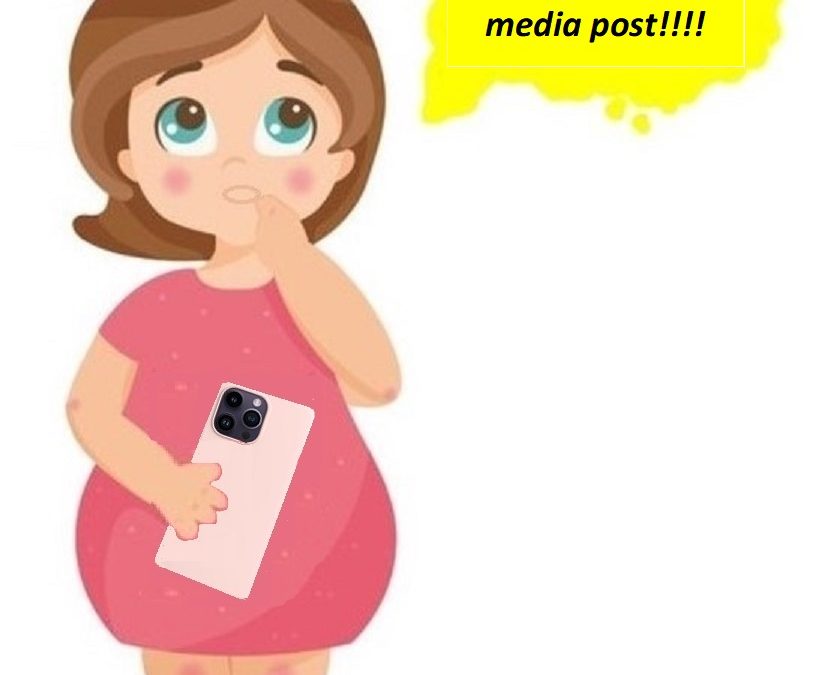A patient recently asked me: “Do pregnancy hormones cause anxiety?”. The answer is no. Pregnancy hormones do not cause anxiety.
This patient, who is 11 weeks pregnant, had an extra reason for pregnancy anxiety. She had required progesterone pessary support to maintain the pregnancy and prevent her having a miscarriage.
I am confident in saying pregnancy hormones do not cause anxiety because in the past the frequency of anxiety amongst pregnant women was far, far less than today.
So, what has changed? The answer is simple. We now have the internet and in particular social media. I am certain social media addiction is the root cause of increased anxiety and insecurity amongst pregnant women.
I discussed this topic with another patient. She is an old patient who saw me for routine gynaecology check-up. She is a head of department teacher. She told me of a 36-year-old teacher in her department who was struggling to get through her out of class teaching duties. This 36-year-old teacher told my patient is struggling because she constantly needs to check her phone for updates. She said she was worried about missing out on something.
I suspect what this teacher told my patient is true of so many younger people. Social media has become an important source of entertainment and news. Social media has become an addiction.
The patient who asked me “Do pregnancy hormones cause anxiety?” told me she is addicted to her mobile phone social media sites.
I am now seeing more evidence of this addiction to phones and social media when husbands/partners come with their wives/partners and during the antenatal visit are busy on checking out what is happening in their social media world on their mobile phones. This never happened in the past.
A principal problem in pregnancy is that pregnancy and childbirth social media posts are usually made by people who are not qualified and so may be erroneous. They may also have a bias e.g., you can’t trust doctors, an epidural will cause you permanent harm, forceps will damage your baby, etc, etc, Pregnant women will often believe such nonsense posts and hence have unnecessary and erroneous pregnancy and childbirth anxieties.
Before women becomes pregnant they are often far more anxious than in the past. I have many patients who tell me at their first antenatal visit that have anxiety – depression. Many are on are taking medications to manage their anxiety – depression. This was not the case in the past, before the internet. Before the internet it was very unusual for a woman to tell me she had anxiety – depression at when I took her medical history at her first antenatal visit.
People are made to be anxious about all sorts of topics. They believe posts and news from people or organisations who have a bias and are trying to propagate and popularise their ideas. Whether or not their views are true is not relevant in their marketing campaign. Now with AI becoming more popular social media bias and often inaccurate posts will increase in frequency. Many posts with be computer generated, but people will think they have been done by real people providing the information.
Another issue is Google has set its algorithms so your searches will give you a bias. If Google knows from your searches you have a bias on a topic then it will tend to include in your search only websites of the same opinion. They will give you the impression everyone has the same view. Someone else who has the opposite bias to you will do the same search and Google will list website of their bias. Any of these websites were excluded from your search.
My advice – Don’t necessarily believe while you read or watch online, and especially what you read or watch on social media sites. Always cross reference. Try to seek out the opinion of people who you trust and who are educated about the matter. For my patients I tell them repeatedly to contact me about pregnancy questions and concerns.


